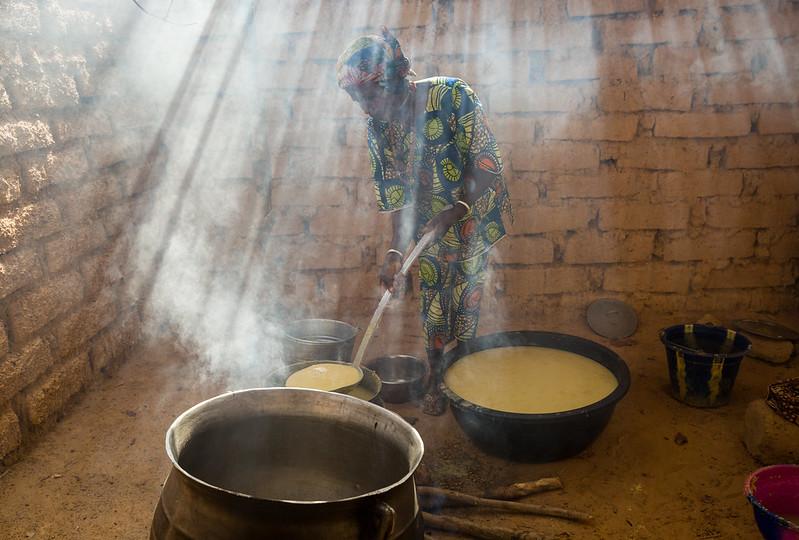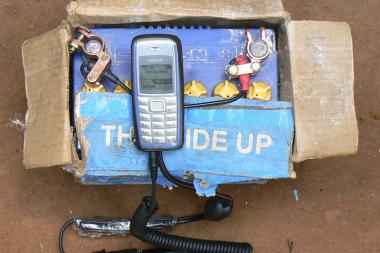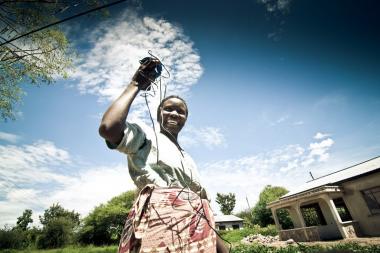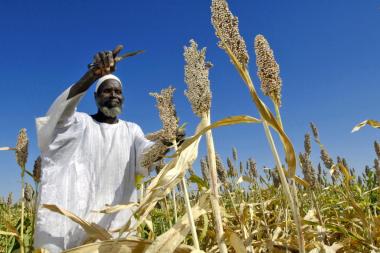Innovation in governance: Integrating technical and contextual perspectives to address fragility
This report is the first of two and focuses on how using process innovations can improve decision-making within complex and fragile environments in Ethiopia, Kenya, Mali, Niger and Somalia.
Building resilience among pastoralists and agro-pastoralists in drylands requires addressing systemic challenges within complex and often fragile political systems. Navigating complexity requires decision-makers to integrate two types of knowledge: technical, or generalisable expert and scientific knowledge; and contextual, concerning local political economy, society and ecology.
Practitioners and decision-makers generally agree that policy and programme decisions should be based on both of these sources of knowledge, especially in complex and fragile environments. However, little attention has been paid to how this integration can lead to improved decision-making that is technically sound, appropriate to local context and perceived as legitimate.
This research brief centres on a specific decision-making framework, the Stakeholder Approach to Risk Informed and Evidence Based Decision Making (SHARED). SHARED aims to develop the participation of stakeholders by embedding technical and evidence-driven decision-making within an understanding of local social, political and ecological systems. This approach has been used in complex and fragile contexts across Africa since 2014, and is formulated with special attention to complex problems, with policy applications from local to national level.
The SHARED approach seeks to integrate innovative – and evidence-based – approaches into complex and fragile political contexts. Looking across the framework's applications in five sub-Saharan drylands contexts in Ethiopia, Kenya, Mali, Niger and Somalia, key messages from this paper include:
- Due to their vulnerability, fragile and conflict-affected environments stand to gain the most from adopting practices based on ‘evidence’ and ‘data’. However, due to the complexity of the effects of climate change, as well as under-investment and recurrent instability in these regions, it is these very environments that especially resist the simple adoption of external ‘best practices’ and scientific knowledge.
- Since vulnerable and fragile contexts are especially complex, for example they may have weak institutional capacity and idiosyncratic political economies, applying external evidence such as ‘best practices’ requires stakeholders to engage in a decision-making process that seeks to synthesise technical information within the complexity of their specific context. This integration, rather than the simple adoption of best practices, is expected to lead to better outcomes.
- By analysing decision-making cases that applied a common multi-stakeholder engagement framework (the SHARED approach) in Ethiopia, Kenya, Mali, Niger and Somalia, we found that the integration of these two knowledge sources leads to decisions that are technically sound, appropriate to local context and perceived as legitimate.
- Through adaptive and flexible engagement, with a focus on inclusion, the SHARED approach triggered common causal mechanisms, such as shifting the zone of political possibility through deliberation and evidence; helping stakeholders navigate complexity through a clear – yet flexible – engagement process; and acting as an engine for adaptive management and technical support during implementation.
- Importantly, we found there are limits to any ‘framework’ – no matter the quality – to guide decision-making in complex contexts. An irreducible element in the SHARED approach’s success is the energetic willingness of its implementers to be responsive and adaptive, relying on internal motivation, rather than top-down compliance. This serves as a caution for funders seeking to scale successful models.
Our research highlights how process innovations can help to solve a classic problem within development: how to facilitate inclusive decision-making processes which integrate both technical and contextual knowledge, allowing local stakeholders to make decisions that are contextually appropriate, technically sound and locally legitimate.
As we argue, fragile and conflict-affected contexts are most in need of such a model. Stakeholders here must navigate the inherent complexity of these contexts, arriving at decisions that respond to local constraints while still integrating evidence. Understanding how to introduce – and facilitate – processes to respond to novel evidence, alongside contextual factors, is crucial for scaling technical solutions.
This research is part of a body of work on the role of innovation in supporting resilience in drylands. If you are you working on innovative solutions designed with and for pastoralists and agro-pastoralists in drylands, we would value your contribution to SPARC’s innovation dashboard.



